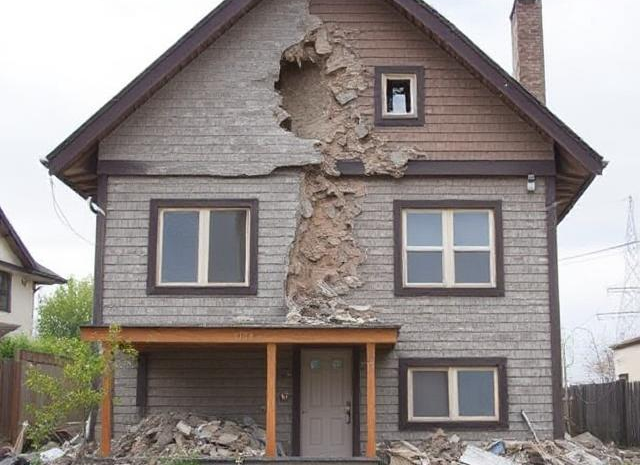
Does Home Insurance Cover Damage From Earthquakes?
Standard homeowners insurance policies typically do not cover damage from earthquakes. Earthquake damage, such as structural damage, cracks in foundations, or damage to personal property caused by an earthquake, usually requires separate earthquake insurance. Here’s a breakdown of what you need to know about earthquake coverage:
1. What Standard Homeowners Insurance Covers
- Standard coverage: A regular homeowners policy generally covers damage caused by common risks, such as fire, theft, vandalism, and windstorm, but it excludes earthquake damage.
- Aftershocks: Even after an earthquake, aftershocks can cause further damage, which would typically not be covered by your regular home insurance policy.
2. Earthquake Insurance
- If you live in an area with a high risk of earthquakes (such as the West Coast of the U.S. or regions near fault lines), you may want to consider purchasing earthquake insurance as an add-on or a separate policy.
- What earthquake insurance covers:
- Structural damage: Earthquake insurance covers damage to your home’s structure, such as walls, ceilings, floors, and foundations.
- Personal property: This can cover damage to personal belongings like furniture, electronics, and clothing if they are damaged during an earthquake.
- Additional living expenses: If your home becomes uninhabitable after an earthquake, earthquake insurance may cover the costs of temporary living arrangements, such as hotel stays.
- Deductibles: Earthquake insurance policies typically have higher deductibles than standard homeowners policies. Deductibles are often calculated as a percentage of your home’s insured value, rather than a fixed amount. This means the deductible could be quite high depending on the value of your home.
3. Earthquake Coverage for Structures and Property
- If you’re concerned about the damage to your home, including foundation cracks, collapsed roofs, and structural damage, earthquake insurance would cover those expenses.
- Your personal property (e.g., electronics, furniture, clothing) may also be covered if it’s damaged by the earthquake. However, the value of personal belongings may be subject to depreciation when calculating the payout.
4. Inclusions and Exclusions in Earthquake Insurance
- Exclusions: Some policies may not cover damage caused by landslides, flooding, or soil erosion that can occur as a result of an earthquake. If your area is prone to these secondary effects, you may need additional coverage like landslide insurance or flood insurance.
- Coverage limits: Ensure you understand the coverage limits for both the structure of your home and personal property. Earthquake insurance often has lower coverage limits for personal belongings compared to standard homeowners insurance.
5. Cost of Earthquake Insurance
- The cost of earthquake insurance depends on several factors, including:
- Location: Earthquake insurance premiums are higher in regions that are more likely to experience significant earthquakes.
- Home value and construction: The size, age, and construction of your home also affect the premium. For example, older homes or homes built on less stable soil might be at higher risk and therefore cost more to insure.
- Deductible and coverage limits: Higher coverage limits or a lower deductible can increase the cost of your earthquake insurance.
6. When to Consider Earthquake Insurance
- Location: If you live in a region where earthquakes are common, such as California, Alaska, parts of Washington, Oregon, or near major fault lines in other parts of the world, it is advisable to consider earthquake insurance.
- Peace of mind: If you want to ensure you are fully protected in the event of an earthquake, especially given the potential high cost of rebuilding or repairing your home, adding earthquake insurance can provide valuable peace of mind.
7. How to Add Earthquake Insurance
- Endorsement or rider: Some insurance companies allow you to add earthquake coverage as an endorsement or rider to your standard homeowners policy. This is often cheaper than a standalone earthquake policy but may offer more limited coverage.
- Separate policy: If earthquake coverage isn’t available as an endorsement or rider, you can purchase a separate earthquake insurance policy through your current insurer or through a specialized provider.
8. Availability and Government Programs
- State programs: In some earthquake-prone states, like California, there are government-run earthquake insurance programs (such as the California Earthquake Authority) that offer affordable earthquake coverage options.
- Other government assistance: If you don’t have earthquake insurance and your home is damaged in an earthquake, federal disaster relief programs may provide assistance, but this aid often comes with strict eligibility criteria and may not fully cover rebuilding costs.

